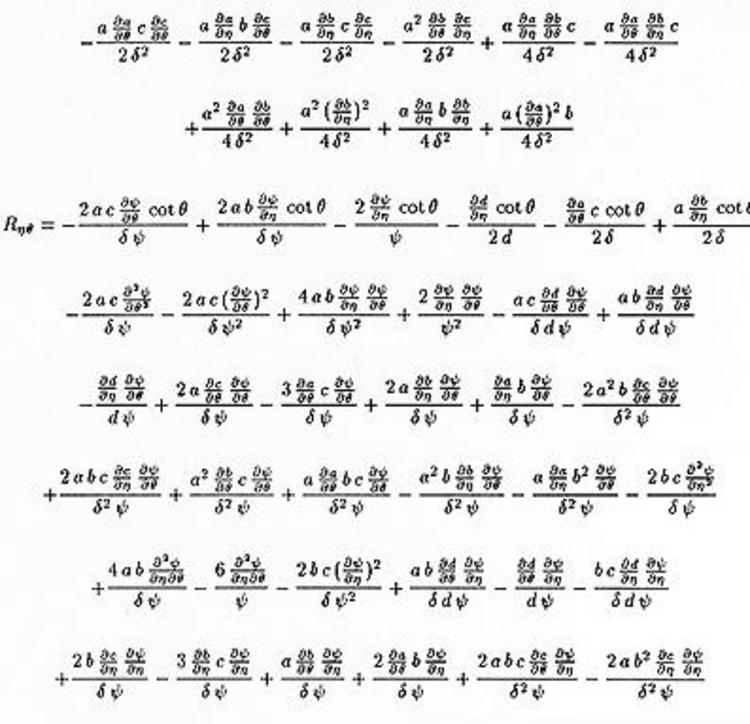So hard I'm crying
 Dong is as old as Eric will be when Dong is twice as old as Eric was when Dong’s age was half the sum of their
present ages. Eric is as old as Dong was when Eric was half the age he will be 10 years from now. How old is
Dong now?
Dong is as old as Eric will be when Dong is twice as old as Eric was when Dong’s age was half the sum of their
present ages. Eric is as old as Dong was when Eric was half the age he will be 10 years from now. How old is
Dong now?
HHS 2011 Alg II #25
This section requires Javascript.
You are seeing this because something didn't load right. We suggest you, (a) try
refreshing the page, (b) enabling javascript if it is disabled on your browser and,
finally, (c)
loading the
non-javascript version of this page
. We're sorry about the hassle.
3 solutions
Thank you doctor. I'm think good now. +1
Nice problem. I set up a system of equations that had nine variables and nine equations. Don't freak out! It was still a very simple system to solve. There were four possible dates that were discussed. I denoted their ages during these dates by D 1 , D 2 , D 3 , D 4 , E 1 , E 2 , E 3 , E 4 . I then let x be the difference in their ages; that is, D i = x + E i (this is four equations). Next, I followed each segment one at a time to set up the remaining equations. "Dong is as old as Eric will be": D 1 = E 2 . "when Dong is twice as old as Eric was": D 2 = 2 E 3 . "when Dong's age was half the sum of their present ages": D 3 = 2 1 ( D 1 + E 1 ) . "Eric is as old as Dong was": E 1 = D 4 . "when Eric was half the age he will be 10 years from now": E 4 = 2 1 ( E 1 + 1 0 ) . Now eliminate all the D's by using the first four equations (and then forget about those first four). After doing that, the equations become: x + E 1 = E 2 , x + E 2 = 2 E 3 , x + E 3 = 2 1 ( x + E 1 + E 1 ) , E 1 = x + E 4 , E 4 = 2 1 ( E 1 + 1 0 ) . Remember that we need to find x and E 1 so that we can determine D 1 . Substitute the first equation into the second. Then the equations of interest become: x + ( x + E 1 ) = 2 E 3 , x + E 3 = 2 1 x + E 1 , E 1 = x + E 4 , E 4 = 2 1 E 1 + 5 . Then substitute the fifth equation into the fourth: 2 x + E 1 = 2 E 3 , E 3 = − 2 1 x + E 1 , E 1 = x + 2 1 E 1 + 5 . Then substitute the second equation into the first: 2 x + E 1 = 2 ( − 2 1 x + E 1 ) , E 1 = x + 2 1 E 1 + 5 . Simplifying: E 1 = 3 x , E 1 = 2 x + 1 0 . So, 3 x = 2 x + 1 0 ⇒ x = 1 0 , and E 1 = 3 x = 3 0 . And, so, D 1 = E 1 + x = 3 0 + 1 0 = 4 0 .
I'll follow the first valid/understandable solution writer.
Seriously I need help. I don't know how to do it.
welll....!!!
I've got a solution for you...
Suppose Eric is E years old and Dong is D years old.
Let D-E = d
(d is the difference between Eric and Dong's age. It shall remain the same no matter how old they both get.)
Take up the first statement:
When Dong's age was half the sum of their present ages, i.e (D+E)/2,
Eric's age was (D+E)/2 - d
When Dong would be twice as old as that he would be:
2[(D+E)/2 - d] years old
When Dong is that many years old, Eric will be 2[(D+E)/2 - d] - d years old
And that is equal to Dong's present age. Therefore:
D = 2 [ (D+E)/2 - d] - d
Substituting E = D-d
D = 2[ (D+D-d)/2 - d] - d
Simplifying
D = 4d .......(1)
Now the second statement
In 10 years, Eric will be E+10 years old
Half that age is (E+10)/2
When Eric was (E+10)/2 years old Dong was (E+10)/2 + d years old
And that is equal to Eric's present age
E = (E+10)/2+d
Substituting E = D-d
D-d = (D-d+10)/2+d
Simplifying,
D =3d+10 ..............(2)
Solving (1) and (2),
4d = 3d+10
d=10
And D = 4d = 40, Dong's age - The answer.